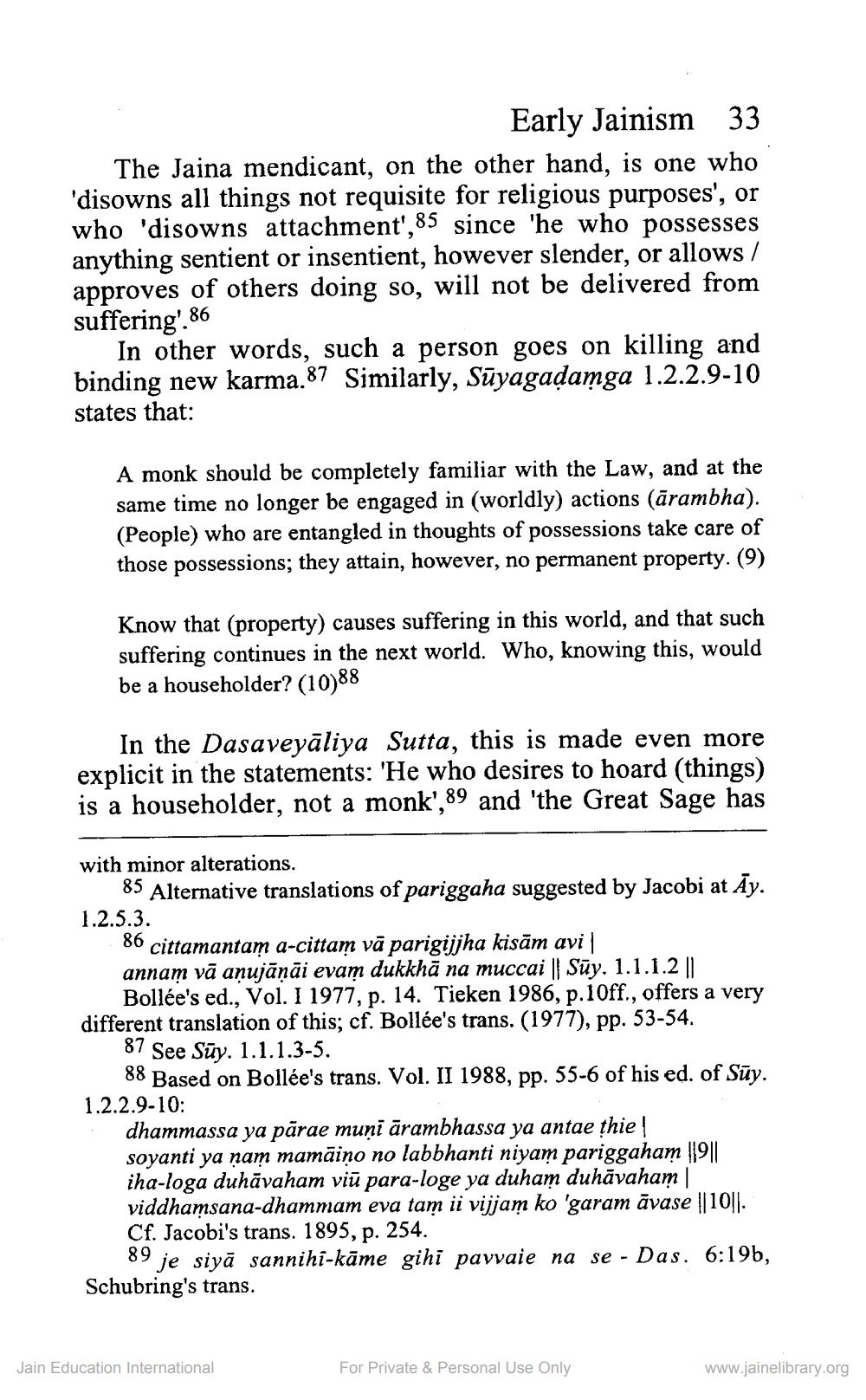________________
Early Jainism 33 The Jaina mendicant, on the other hand, is one who 'disowns all things not requisite for religious purposes', or who 'disowns attachment', 85 since 'he who possesses anything sentient or insentient, however slender, or allows / approves of others doing so, will not be delivered from suffering'. 86
In other words, such a person goes on killing and binding new karma.87 Similarly, Sūyagadamga 1.2.2.9-10 states that:
A monk should be completely familiar with the Law, and at the same time no longer be engaged in (worldly) actions (ārambha). (People) who are entangled in thoughts of possessions take care of those possessions; they attain, however, no permanent property. (9)
Know that (property) causes suffering in this world, and that such suffering continues in the next world. Who, knowing this, would be a householder? (10)88
In the Dasaveyāliya Sutta, this is made even more explicit in the statements: 'He who desires to hoard (things) is a householder, not a monk', 89 and 'the Great Sage has
with minor alterations.
85 Alternative translations of pariggaha suggested by Jacobi at Āy. 1.2.5.3.
86 cittamantam a-cittam vā parigijjha kisām avi | annam vā aṇujāņāi evam dukkhā na muccai || Sūy. 1.1.1.2 ||
Bollée's ed., Vol. I 1977, p. 14. Tieken 1986, p. 10ff., offers a very different translation of this; cf. Bollée's trans. (1977), pp. 53-54.
87 See Sūy. 1.1.1.3-5.
88 Based on Bollée's trans. Vol. II 1988, pp. 55-6 of his ed. of Sūy. 1.2.2.9-10:
dhammassa ya pārae muņi ārambhassa ya antae thie soyanti ya nam mamāiņo no labbhanti niyam pariggaham 1911 iha-loga duhāvaham viū para-loge ya duham duhāvaham | viddhamsana-dhammam eva tam ii vijjam ko 'garam āvase ||10|1. Cf. Jacobi's trans. 1895, p. 254.
89 je siyā sannihi-kāme gihi pavvaie na se - Das. 6:19b, Schubring's trans.
Jain Education International
For Private & Personal Use Only
www.jainelibrary.org




